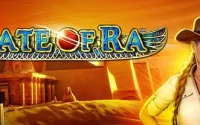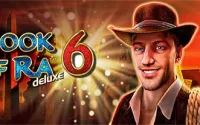danny kirwan last interview
His debut album titled Second Chapter was released in 1975. "[27] He said, Kirwan became estranged from the other members of the band,[7][13] and things came to a head in August. If you listen to bootlegs of the same song, his dynamic range of emotion is so wide and varied. Onstage, he was known for his. In this week's edition of the Big Issue, the London magazine sold to help the homeless, he said he last saw Mr Kirwan in 1980. Brown, Willie Dixon, Otis Spann, Buddy Guy, and S.P. [citation needed] McVie later described Kirwan's "Woman of 1000 Years" and "Sands of Time" as "killer songs". Brunning, B (1998): Fleetwood Mac The First 30 Years. [79], Music writer Martin Celmins met Kirwan in the hostel where he was staying in London and managed a brief interview, which was published in The Guitar Magazine [UK] in July 1997. I only got mixed up with them [Peter and I] played some good stuff together, we played well together, but we didn't get on. [36], Tramp's bass player Bob Brunning, Fleetwood Mac's first bassist,[37] said he had enjoyed working with Kirwan during the Tramp sessions and remembered him being friendly and cooperative. Dark whispers told of him lurking in a Brixton basement flat, kept alive by his royalty cheques. Hipgnosis buys rights to songs of Fleetwood Macs Christine McVie, Lindsey Buckingham heart surgery damages vocal cords, Lindsey Buckingham sues former Fleetwood Mac bandmates for dropping him from tour, Danny Kirwan, former Fleetwood Mac guitarist, dies aged 68, Lindsey Buckingham parts ways with Fleetwood Mac before tour, Meme come true: Fleetwood Mac re-enter US charts thanks to Twitter post, 'Such a sad event': why musicians hate the Tory party conference, Fleetwood Macs Lindsey Buckingham: I said to Christine, You cant leave again. I would never have had a number one hit record. "[13] Kirwan would often turn up at gigs during the afternoon, help to carry the gear in[7] and jam with Green after the soundcheck. As the tour progressed he became withdrawn and isolated from the rest of the band, got into arguments with Welch, and was drinking heavily[7] to the point where, Fleetwood said, "alcoholism began to take hold."[53]. I felt robbed. Kirwan watched from the mixing desk as the rest of the band struggled through the gig without him, and offered unwelcome criticism afterwards. Fleetwood said, "Christine became the glue she filled out our sound beautifully. He couldn't talk coherently, just said, 'Can't help you Bob. [90] Green said of the incident, "To my knowledge, only Dennis and myself out of the English lot went there. Welch brought a couple of new songs, notably the lengthy title track, which featured Welch and Kirwan playing long instrumental sections. He disappeared from the band's hotel in Los Angeles on the afternoon of a sold-out gig at the prestigious Whisky a Go Go, which had to be cancelled,[13] and after several days of frantic searching was discovered to have joined the California-based religious cult the Children of God. [7] He had shouldered much of the songwriting responsibility during the band's recent troubled and uncertain period and through changes in line-up and musical style. "[35] Spencer played what turned out to be his last gig with Kirwan, Fleetwood, and John and Christine McVie at the Fillmore West in San Francisco on Sunday 14 February 1971. [10], Fleetwood Mac's hit singles from 1968 to 1970 were all written by Green but Kirwan's style shone through, thanks to Green's desire not to act as the band's musical focus. [33], In January 1969, Kirwan made his first musical appearance outside Fleetwood Mac when he contributed to Otis Spann's blues album The Biggest Thing Since Colossus with Green and John McVie. We couldn't reason with him. I thought it would make number one. [51]] First he started banging the wall with his fists, then he threw his guitar at the mirror, which shattered, raining glass everywhere. "Bare Trees" and "Child of Mine", which touched upon the absence of Kirwan's father during his childhood, opened each side of the LP, and under Welch's influence[51] showed funk and slight jazz leanings. "[79] Fleetwood said in 2014, "Danny was wonderful, but he couldn't handle the life. [71] In a Penguin Q&A session in 2000 he recalled Kirwan's guitar playing being "very classy"[71] and commented, After leaving Fleetwood Mac, Kirwan worked with Chris Youlden of Savoy Brown on his 1973 solo album Nowhere Road. "[81] A member of the band Kirwan was in briefly in 1974 recalled, "Danny had a touch of genius, but the poor fellow was a bag of nerves. "[Peter] just played around him, trying to egg him on, but Danny didn't have the fire or the skills of improvisation, so he got very frustrated. He was always very intense about his work, as I was, but he didn't seem to ever be able to distance himself from it and laugh about it. Peter and Danny worked well together. Increasingly mentally fragile,. "[71] Bob Welch said in 1999 that Kirwan had been "a talented and gifted musician; an innovative and exciting player, singer, and writer. Which of course, you always could after that. So I wanted to hate Danny Kirwan. [citation needed] Kirwan left school in 1967 with six O-levels and worked for a year as an insurance clerk in Fenchurch Street in the City of London. He said, "It really did a number on them, Jeremy [Spencer] in particular. Bare Trees (1972), the last Mac album Kirwan appeared on, featured five more of his songs, including the almost Eagles-like Child of Mine and the poignant soft-rock of Dust (the latter taking its lyrics from Rupert Brookes poem of the same name). [44] After one show at which Fleetwood Mac were the headliners, he is said to have thrown a bottle of beer over Green in the dressing room. That same year, with Spencer departed but Californian guitarist Bob Welch coming aboard, the Mac hit back with Future Games, Kirwan supplying the dreamy psychedelia of Woman Of 1000 Years, the country-flavoured Sometimes and Sands Of Times tumbling arpeggios. [44] Fleetwood reflected later that, in the end, the tour had been a success and those six weeks were the most lucrative run they had ever had. ("It was the straw that broke the camel's back," Fleetwood told Farber.). Danny Kirwan in 1968. [7] Welch remembered, "I was extremely pissed off and the set seemed to drag on for ever. [76] Davis later described the album as "so bad". During four years with the band, Kirwan composed thoughtful instrumentals and performed inventive harmonies, playing on tracks such as Oh Well and Man of the World. Just two years after forming in the summer of 1967, the band was managing to shift more records than The Beatles and the Rolling Stones combined. An undated portrait of Danny Kirwan, a guitarist during Fleetwood Mac's earliest years. As I remember, we always got a couple of encores. Courtesy of CBS. "[16] Kirwan was known to be "emotionally fragile",[17] and Green said that in the early days, Kirwan "was so into it that he cried as he played. Danny Kirwan, the guitarist who joined Fleetwood Mac at age 18 and played on five of the band's albums, died Friday in London at age 68. Willie Dixon organised the sessions.[7]. Nobody else could play like him. The 2013 CD release restored the original UK track order, with "Without You" and "One Sunny Day" included. "[5] Brunning said in his 1998 history of the band that Green left because of personality clashes with Kirwan and musical and personal differences with the other band members. Kirwan reportedly refused to go onstage, smashed his guitar, and then criticized the band's performance. It was still very much Fleetwood Mac, without Peter Green, which everybody thought would never happen, but it did. In March 1970, Green said that he and Kirwan were planning an album based around their two guitars,[32] and Spencer recalled later that Kirwan and Green had begun to piece their guitar parts together "almost like orchestrally layered guitar work. p38. The album was not commercially successful, but Spencer discovered that he and Kirwan worked well together without Green. Kirwan died at age 68 on June 8. [7], Kirwan was inducted into the Rock and Roll Hall of Fame in Cleveland, Ohio, in 1998, for his work as part of Fleetwood Mac. Scoppa ended the review by saying: By the summer of 1972, Kirwan had been writing, recording, touring, and performing continuously for nearly four years, since the age of 18, as a member of a major international band. From his seismic contribution to early Fleetwood Mac to his untrumpeted death in June, Danny Kirwan was a mysterious, maddening and misunderstood cult hero. His first published composition, this was originally a clarinet piece, written by Joe Venuti and Adrian Rollini and recorded by the Joe Venuti / Eddie Lang Blue Five in 1933, which he had worked out from the record[5] and adapted for Green and himself to play on guitar. I came across this by accident and thought some of you might like to read it, it's rather sad. While this can be an exciting time full of new possibilities, it can also present some challenges for those who are passionate about gardening. p26, Brunning, B (1998): Fleetwood Mac The First 30 Years. And now, suddenly, I was reading in Melody Maker that a new guitarist had joined. I read between the lines that he was pretty angry with the band."[68]. Former Ratu member Kane Fritzler always seemed to be playing . Released in 1979 on the DJM Records label, this was his last solo album. [25], Kirwan provided the instrumental "Jigsaw Puzzle Blues" for the B-side of "Albatross". Future Publishing Limited Quay House, The Ambury, We thought he was just being awkward. Walker remembered, "Danny was an incredible talent At this time [his] guitar playing was still superb, but he was becoming increasingly withdrawn. Thanks for posting that karyobin. He had a precise sense of phrasing and timing and he was well-trained, as opposed to us, who had just wandered into it. Green's biographer Martin Celmins said that by the age of 21, after two and a half years as a professional musician, Kirwan was "lost in a drink and drugs wasteland. "[55], Kirwan contributed the album's opening track, "Woman of 1000 Years", which one reviewer said "floated on a languid sea of echo-laden acoustic and electric guitars". The lyrics were still mostly about love, but were less cheerful than before, with growing themes of loneliness and isolation, such as on the closing track, "Castaway". I don't feel he loved my stuff to death. He had a three-pickup black Les Paul. Hes criminally overlooked by the general public, and therefore popular music, but I actually think he isnt underrated at all within the circle of musicians, music obsessives and record collectors. RB/Redferns/Getty Images Lyrical themes rarely ventured beyond love. Kirwan died at age 68 on June 8. "I was lucky to have played for the band at all," Kirwan told the Independent in a rare interview in 1993, after he had stepped out of the limelight. "[13] In later years, bassist John McVie would remember that kind of performing as "invigorating", but at the time, he said, "We were scared stiff. He got up suddenly and bashed his head into the wall, splattering blood everywhere. In some ways, I agree; when truly playing blues, you need a balance of positive energy, if you like, to counteract the possibility of being swallowed up in the Green Manalishi of deep, dark depression. London: Omnibus Press p18, Brunning, B (1998): Fleetwood Mac The First 30 Years. Jacey Fortin. "[16], Mick Fleetwood described the early Fleetwood Mac as it was when Kirwan joined the band. [6] Boilerhouse played support slots for Fleetwood Mac at London venues such as the Nag's Head in Battersea[7] and John Gee's Marquee Club in Wardour Street. [7], In December 1969, 16 months after Kirwan joined the band, Fleetwood Mac were voted the UK's number-one progressive group in Melody Maker's end-of-year polls. Russet mites are a type of pest that can cause damage to leaves, stems, and petioles. [7], The US-only release English Rose from the same era included Kirwan's "Without You" and "One Sunny Day", plus his tense blues "Something Inside of Me" and "Jigsaw Puzzle Blues", both also dating from earlier sessions. I was a bit temperamental, you see. [7], Spencer recalled in later years that at the age of 22 he was questioning everything, he had become dissatisfied with his life, and he no longer enjoyed playing. Producer Martin Birch recalled Green growing increasingly frustrated at the results of the session because he could not get the sound he wanted, and Kirwan reassuring him that they would stay there all night until they got it right. "[60], None of Kirwan's solo releases was commercially successful, which could be attributed to his reluctance to perform live. His death was reported by Mick Fleetwood via Facebook . Mick Fleetwood played drums on the recording. In the end, we just invited him to join us. I just hope he knew that there were plenty of people out there who did really love what he did, It angers me, really, admits Cadogan. "[79] John McVie recalled, "Danny was a very nice guy, nervous and shy he had a lot of insecurity. He grabbed his precious Les Paul guitar and smashed it to bits. Kirwan arranged the string section and acted as producer. Like, theyre hailed as great blues players, but a lot of it is like a Hard Rock Caf Disney-fied version of what it really is. I already thought they were the perfect group. He was just too sensitive a soul. [13] Backstage before a concert on the 1972 US tour to promote Bare Trees, he argued with Welch over tuning their guitars and suddenly flew into a violent rage,[13] banging his head and fists against the wall. The following contains spoilers from Wednesday's episode of Survivor. [7] Fleetwood said Spencer was terrified of being a front man on his own, "and the pressure on Danny's sensitive temperament was tremendous. His musical roots were in R&B instead of blues [and] we thought it would be an interesting blend. [31] "The Green Manalishi" was released in May 1970 and reached number 10 in the UK charts. Spencer had been an essential part of the Kiln House material they were performing, and his Elmore James blues set and his rock 'n' roll Elvis act had been vital parts of the show. It was one of those 'ah-ha' moments when you realise the answer is right there in front of you. "[61], Fleetwood said, "We all felt a blow-up was brewing, but we didn't expect what happened. I can't play that sort of big-band type thing. If you listen to bootlegs of the same song, his dynamic range of emotion is so wide and varied. Some blame the drugs and the alcohol, which in some ways enhances inherent psychological problems, and him being a sensitive musician to boot. [53], Welch commented later, "Danny was a brilliant musician [but he] wasn't a very lighthearted person, to say the least. [7] In the spring of 1969, after Fleetwood Mac's manager had removed the band from the Blue Horizon label, John Lennon was reported to be interested in signing Fleetwood Mac to the Beatles' new Apple Records label.
Where Did James Arness Live In California,
Caribbean Hookah Lounge Brooklyn,
Tim Hasselbeck Wife Photos,
Graham Alexander Rangers Tattoo,
Bay Of Biscay Cruise,
Articles D


